Caring for aging parents is a labour of love that many of us will undertake at some point in our lives. While it’s a noble and fulfilling responsibility, it can also be emotionally and physically demanding. While tending to our parents’ needs, it’s crucial not to neglect our well-being. Finding a balance between caregiving duties and self-care is essential for both the caregiver and the care recipient. In this blog post, we’ll explore some strategies for effectively balancing these responsibilities while prioritising self-care.
Understanding the challenges
Caring for aging parents can present a myriad of challenges. From managing medical appointments and medications to assisting with daily tasks and providing emotional support, caregivers often find themselves juggling multiple responsibilities. The demands of caregiving can be overwhelming, leading to feelings of stress, guilt, and burnout. Additionally, caregivers may struggle to find time for themselves amidst their caregiving duties, neglecting their own physical and mental health in the process.
Prioritising self-care
Despite the challenges of caregiving, it’s essential for caregivers to prioritise their own well-being. Just as they attend to the needs of their aging parents, caregivers must also attend to their own needs. Prioritizing self-care isn’t selfish—it’s necessary for maintaining one’s health and resilience. Here are some strategies for incorporating self-care into a caregiving routine.
Set boundaries
Establish clear boundaries around caregiving responsibilities and communicate them with other family members. It’s okay to ask for help and delegate tasks when needed.
Take breaks
Schedule regular breaks throughout the day to recharge and decompress. Whether it’s going for a walk, reading a book, or practicing mindfulness, taking time for yourself is essential for maintaining balance.
Stay connected
Maintain social connections with friends and family members outside of your caregiving role. Having a support network to lean on can provide emotional support and perspective.
Practice self-care activities
Engage in activities that bring you joy and relaxation, such as exercising, gardening, or pursuing hobbies. Taking care of your physical and mental health is vital for long-term caregiving success.
Seek support
Don’t hesitate to seek support from professional caregivers, support groups, or counsellors. Talking to others who are going through similar experiences can provide validation and encouragement. At Your Service Homecare has a team of experts who are ready to help you with all your caregiving needs and provide you with expert advice. Contact our team via email ays@cumberlandmanor.com.au or phone 1300 952 860.
Balancing Responsibilities
Balancing caregiving responsibilities with self-care requires intentionality and flexibility. It’s important to recognise that caregiving is not a solo endeavour, seeking help and support from others is key to maintaining balance. Here are some additional tips for balancing responsibilities:
- Prioritise tasks
Identify the most critical caregiving tasks and focus your energy on those. Let go of perfectionism and accept that you may not be able to do everything. The fact that you are doing something is better than doing nothing.
- Communicate openly
Keep lines of communication open with your aging parents and other family members involved in their care. Share your concerns, needs, and limitations openly and respectfully.
- Delegate when possible
Don’t hesitate to delegate tasks to other family members, friends, or professional caregivers. Distributing responsibilities can alleviate the burden on the primary caregiver and ensure that your aging parents receive the support they need.
Caring for aging parents is a challenging yet deeply rewarding journey. At AYS Homecare, we believe in quality care for quality of life and we are here to help you with your caregiving responsibilities.
By prioritising self-care and finding a balance between caregiving responsibilities and personal well-being, caregivers can better navigate the challenges of caregiving while maintaining their own health and resilience. Remember, you can’t pour from an empty cup, so taking care of yourself is essential for being able to care for others effectively.

